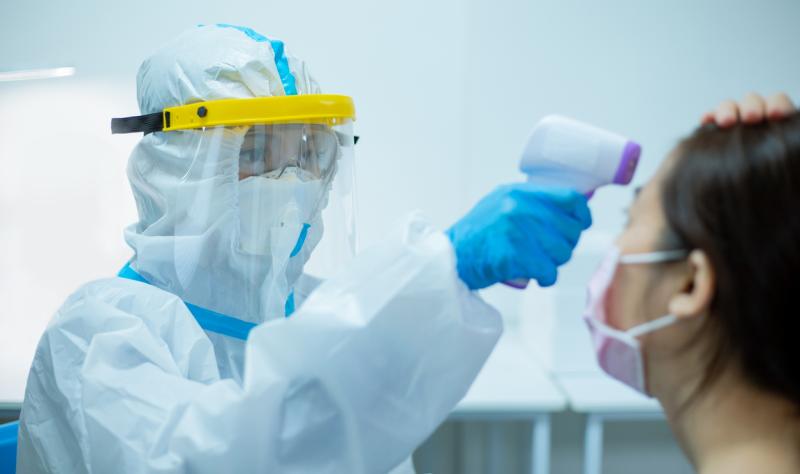Myocarditis, pericarditis remains rare after COVID-19 booster

October 11, 2022
3 min read
Source/Disclosures
Published by:
Disclosures:
Goddard reports no relevant financial disclosures. Please see the study for all other authors’ relevant financial disclosures.
Myocarditis and pericarditis after COVID-19 vaccination is rare across demographic groups and most likely to occur in teen boys in the week after their second shot of a two-dose vaccine, according to a study.
It was also more likely to occur after a booster shot compared with a first dose of vaccine, the study showed.

When it does occur, researchers found the side effect nearly always fades within a week or so, with no further health events noted.
“Overall risk in the general population remains low,” Kristin Goddard, MPH, a research practice specialist at the Kaiser Permanente Vaccine Study Center, told Healio in an email.
“This paper further confirms that myocarditis/pericarditis following [messenger RNA] COVID-19 vaccination is most frequently seen in adolescent males following dose 2 and first boosters,” said Goddard, lead author of the study.
Using data from the Vaccine Safety Datalink, a collaboration of eight integrated U.S. health delivery systems that have tracked specified outcomes of COVID-19 vaccination since shots started being distributed in December 2020, the researchers identified all cases of both conditions reported after primary series vaccine doses and boosters among people aged 5 to 39 years.
From Dec. 14, 2020, through May 31, 2022, the researchers found 320 potential cases of myocarditis/pericarditis 1 to 98 days after vaccination among 6.99 million vaccine doses. Of these, 224 cases were verified; 137 occurred within a week of vaccination, with 18 after the first dose; and 119 after the second dose.
From Sept. 24, 2021, through Aug. 20, 2022, the researchers identified 101 potential cases of myocarditis/pericarditis among 1.85 million booster doses, with 77 of them verified. Of these, 39 cases (51%) were identified in the first week after booster reception compared with 38 identified in the subsequent 13 weeks.
This translated to myocarditis/pericarditis occurring 0 to 7 days after vaccination among people aged 5 to 39 years in about one in 200,000 people after a first vaccine dose, about one in 30,000 people after a second dose and about one in 50,000 people after a first booster dose. The researchers note that incidence varied by age and sex, but there was a disproportionate number of cases in males, specifically after the second dose or a booster.
“Our observed incidence after first boosters was generally higher after the first dose. However, in contrast to some earlier reports, we did not consistently observe a lower incidence after that first booster than after the second dose in the primary vaccination series. … It is important to keep in mind the overall risk remains small in the general population. These data contribute to an evolving picture of myocarditis and pericarditis following mRNA COVID-19 vaccines,” Goddard said.
As of May 2022, the CDC had investigated 972 suspected cases of myocarditis among children aged 5 to 17 years who received the Pfizer-BioNTech vaccine, with 635 cases confirmed and 214 still under review at that time after a total of 54.8 million doses were administered to people in the age group.
The CDC’s vaccine advisory group in September voted to recommend the new two-dose bivalent boosters from Pfizer-BioNTech and Moderna.. All but one member of the group voted in favor of recommendation.
A large U.S. study published in April, as well as others in Hong Kong and Israel, have found similarly low risk level for myocarditis, with the highest risk among teen boys — and all, like the new study, have concluded the benefit of vaccination to prevent COVID-19 infection and limit disease severity outweighs the heart risk.
“While myocarditis/pericarditis following vaccination remains unlikely for most, it’s reassuring that when episodes do occur, they tend to be mild, short lived and with full recovery. So far, risk-benefit analyses of COVID-19 mRNA vaccines for all age groups have found that the benefits of vaccination greatly outweigh potential risks,” Goddard said.




